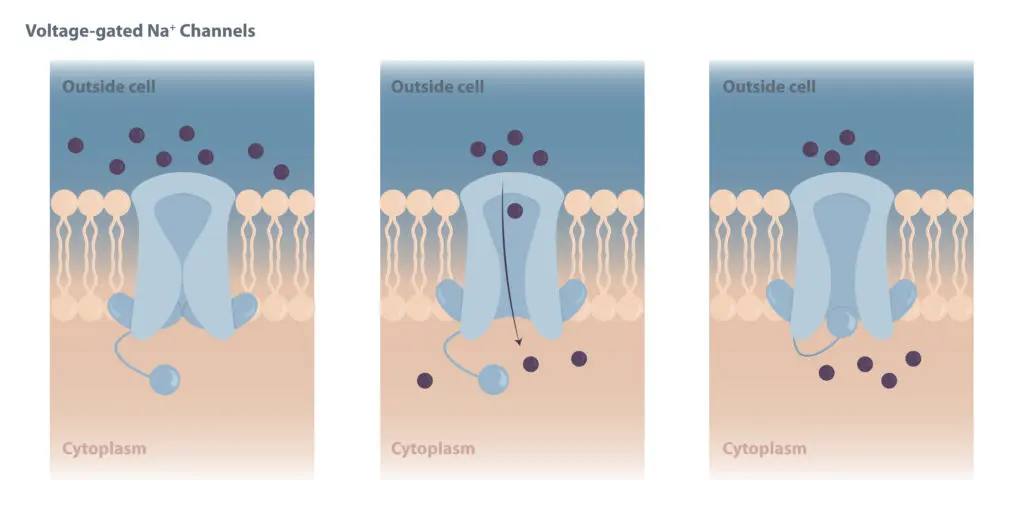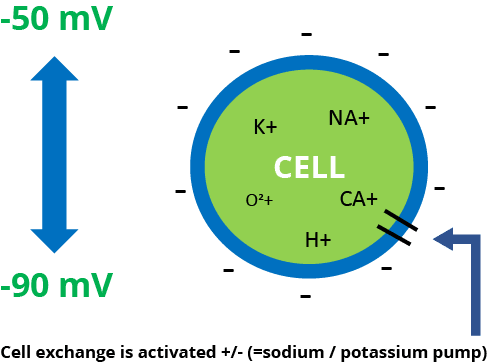Back to the sources of nature: The energy of water
Water is life
The water in which our cells bathe is essential to life. Our cells are made up of 99% water molecules (out of 100 molecules that make up a cell, 99 are water molecules!), that is to say that the quality of water is crucial.
Water is also and above all an interface of energy that feeds our energetic body which is the essence of our consciousness and our humanity!
Nature, when it is still wild, offers us a high quality living water that has watered us for millennia. This water is free and vibrates in tune with the energy that surrounds and penetrates it.
Dynamized water (or called by some, revitalized water) is the pleasure and importance of drinking this energized water, comparable to that found in the wilderness.
« Water is not necessary for life, it is life » Antoine de St. Exupéry
Fact : Water is Life
The human body :
- contains +/- 60-70% of metabolic water (in terms of weight, mass)
- this biological water is essential for our health:
- it hydrates us,
- it transports nutrients and detoxifies the body (via sweat and metabolic waste excreted in the urine)
- it participates in cell metabolism
- the cells of our body are made up of 99% of H2O molecules (by volume or number)! The other molecules are: 0.5% ions (potassium, magnesium, sodium, chlorides, bicarbonates and trace elements), 0.4% organic matter.

The importance of water for our body
Biological water of the human body is found in:
- 65% inside our cells = intracellular fluid (cytoplasm); this is where, according to Gerald Pollack of the University of Washington, EZ water (Exclusion Zone) is made up: nanometric films of completely pure hexagonal water (without other ions and in gelatinous form) which surround our proteins ( macromolecules inside our cells) and which transform electromagnetic fields into electrical energy which would allow cellular communication and the functioning of human metabolism.
- 35% around our cells = composed mainly of interstitial fluid (28%) and blood plasma (7%).
Water is essential to hydrate our cells
Water is absorbed into our body within 5 minutes of drinking and remains in the body for an average of 10 days. All the water in your body is replaced within +/- 50 days. Water molecules are transported through the bloodstream to all cells in the body.
By drinking dynamized water, it will better hydrate our cells by entering them more easily via aquaporins (the water channel of the cell through the cell membrane which is waterproof, see image below) thanks to its lower surface tension.

Membrane voltage and its influence on cell exchange
A healthy cell (which promotes a biogenic environment) has a negative charge membrane (between – 50 & – 90 mV) => the ionic channels open (due to the difference in membrane voltage and the difference in intra and extracellular ion concentration), the positively charged nutrients (Ca +, K +, Na +) and oxygen penetrate the cell (pollutants come out)
An unhealthy cell (acid which favors a pathogenic environment: virus, bacteria, inflammations) has a membrane with positive charge between + 50 & + 90 mV => the ionic channels close, the nutrients positively charged (Ca +, K +, Na +) and oxygen no longer enter the cell (the pollutants remain)
Any conductive liquid (water with minerals) in movement (vortex) in a metal tube (copper) which is exposed to magnetic fields (permanent magnets) sees electric currents with electronegative charge within it. Those currents will ionize water (electron transfers that will modify its electrical charge) and will produce a tension on the level of the cellular membranes, and this in proportion to the speed of the water flow (amplitude) and the power of the magnetic fields emitted. See on this subject the studies on magnetism and water.
Each cell is surrounded by a membrane that includes ionic channels* (transmembrane molecule). These ion channels are voltage-dependent (are crossed by very small currents which modify the membrane potential). The difference in membrane voltage will, with the difference in ion concentrations between the extra- and intracellular medium, activate the opening and closing of the ion channels which allow nutrients to enter our cells and the metabolic waste to make them exit. (= sodium-potassium pump = operating principle of cellular metabolism).
We assume that the ionization of dynamized water by permanent magnets (i.e. the modification of its electric charge which becomes more electronegative) will contribute, by changing the potential of the cell membrane in negative polarity, to activate the ion channels and thus promote the functioning of cellular metabolism. See also on this subject Bradley J. Roth, John P. Wikswo: “The electrical potential and the magnetic field of an axon in a nerve bundle “)
It is estimated that a healthy cell (which lets ions in and metabolic waste out) has a membrane potential of -60 mV to -90 mV unlike that of an acidic cell = + 60 mV.
*The German professors Neher and Sakmann (Nobel Prize for Medicine 1991) with their patch clamp method demonstrated in the 1980s that metabolism worked through transmembrane ion channels with different potentials








